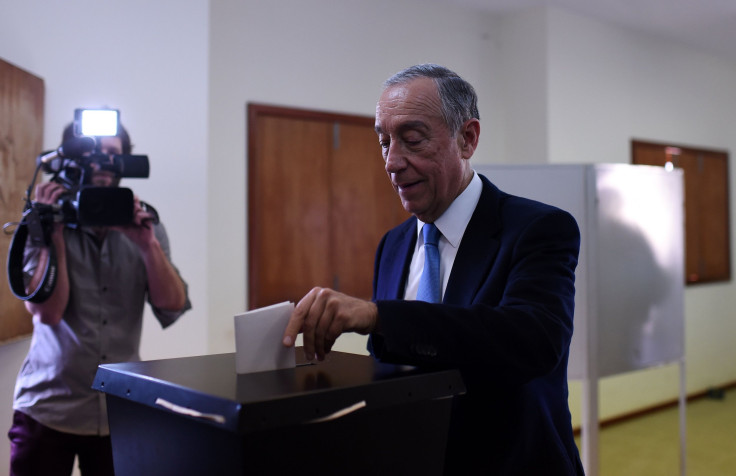Portugal Presidential Election Results 2016: Marcelo Rebelo De Sousa Wins In Sluggish Economy

Marcelo Rebelo de Sousa won Portugal’s presidential election with more than 52 percent of the vote, according to results posted on the Portuguese government’s website Sunday. The center-right candidate is a longtime television commentator who has enjoyed widespread popularity despite a growing shift toward the left in the country.
“He is a consensus candidate and a moderate who takes votes both on the left and on the right. But the voters will have to mobilize for him to be elected in the first round,” political analyst Jose Antonio Passos Palmeira told Agence France-Presse.
With 99.24 percent of the votes counted, Rebelo de Sousa had a strong lead, with 52.14 percent of the ballots cast. His closest rival, socialist Antonio Sampaio da Novoa, trailed far behind, with 22.76 percent of the vote. Voter turnout was low, with an abstention rate of about 50 percent, according to local media. The government’s website was expected to continue to update results here until all votes were counted.
Social Democrats lead polls as Portugal prepares for elections. https://t.co/tIbjxzTHCl pic.twitter.com/G03DD9a1mv
— teleSUR English (@telesurenglish) January 23, 2016
Rebelo de Sousa was running against a record nine other candidates in the election Sunday. The failure to win a majority would have resulted in a runoff election Feb. 14, something that will not be necessary in this case. While the president is a mostly symbolic figure in Portugal, he does have the power to dissolve Parliament if and when necessary.
The former government minister and TV pundit has promised he will work with the left-wing government and attempt to serve as a “referee” for warring factions, Euronews reported.
The presidential election was conducted less than six months after dramatic general elections in October led to a left-wing coalition taking power. After a center-right coalition finished first in legislative elections, several left-wing parties banded together and voted to oust the elected government after only 11 days, the shortest period a government has been in office since the Carnation Revolution in 1974.
Left-wing parties and candidates had been gaining power in Portugal as European-imposed austerity policies, such as national spending cuts and tax increases, caused unrest among citizens in the sluggish economy. The austerity measures were accepted in exchange for a cash bailout after the global financial crisis that became obvious to all in 2008 caused economic growth to tank, sending the country’s budget deficit and its unemployment rate both soaring. The Portuguese economy has continued to struggle with slow growth in subsequent years.
© Copyright IBTimes 2024. All rights reserved.












